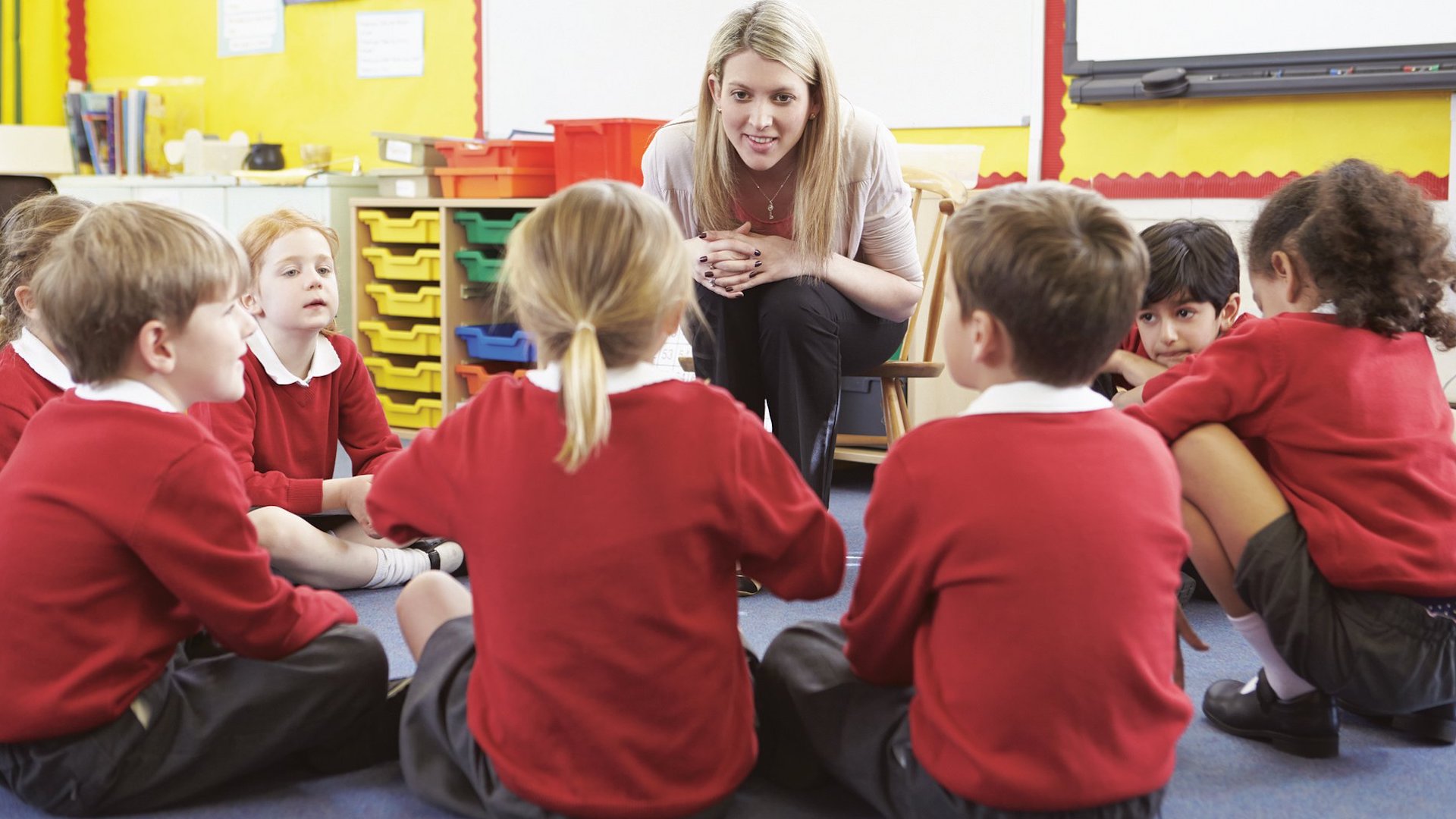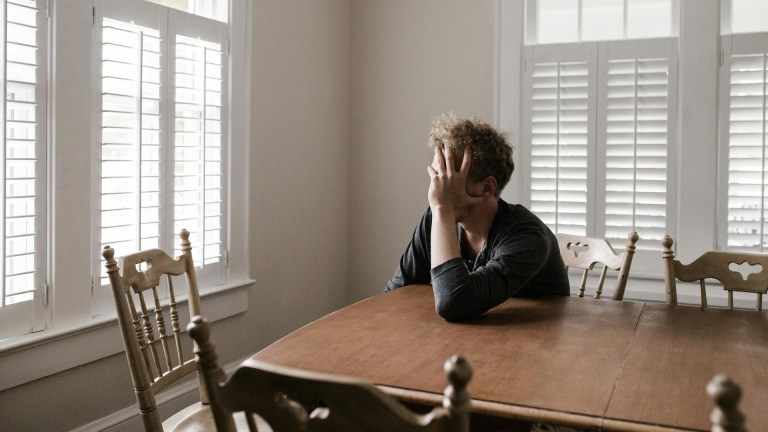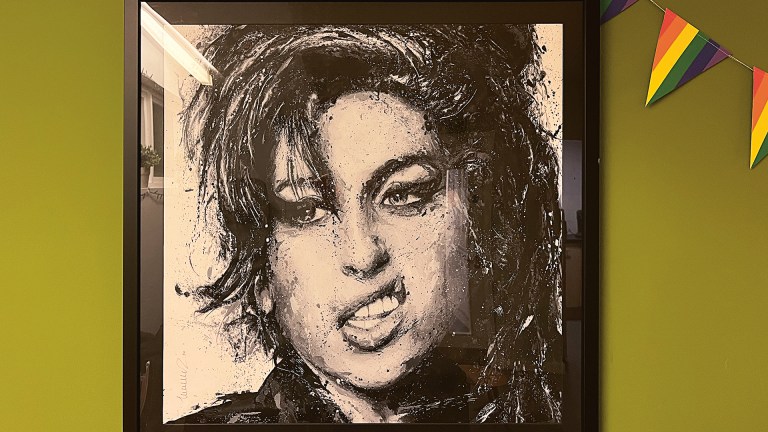Emma’s husband was placed on furlough from his job with a beer and wine wholesaler at the beginning of the pandemic, cutting the family’s income enough that they qualified for universal credit, the controversial benefits system. Trying to make ends meet became “a constant battle day by day,” she told The Big Issue.
She had previously relied on second-hand uniform fairs at her son’s school to buy items for £1 each, but with those fairs cancelled in lockdown she was forced to ask family for “a couple of pounds each” so she could buy uniforms.
“He wasn’t going to get uniform otherwise,” Emma said. “The kids’ clothing is essential. But when it comes to school uniform, it’s such a high cost for so little time.
“You get a whole list of what they need for PE, which they’re doing once a week. And they’ll grow out of those clothes in three months.”
The practice of schools requiring badged uniform from approved suppliers was dramatically increasing costs for families, the Covid Realities researchers said, and costs had been driven higher for those in poverty with charity shops closed in lockdown.
It was just one of the living costs which increased during the pandemic, Emma said. Saddled with soaring heating and electricity bills as they sheltered at home, the family of five were forced to go two weeks without heating in the middle of winter just to ensure they could still afford hot water for washing.
And despite Emma and her husband going without food to ensure their kids could eat, her son does not qualify for free school meals. Her family’s story is not a rare case.
Northern Ireland single mum Caroline Rice, 47, faced a similar struggle to afford school uniforms after the pandemic hit her finances. She was made redundant from her job in a nursery in August, just as schools were returning for the Autumn term, and returned to her previous work childminding to support her 10-year-old daughter.
“I’ve got children coming in and out all the time, I need to prioritise the heat and food over everything else,” she told The Big Issue. “My daughter’s not wearing the proper uniform, she’s really just wearing sports leggings to school because I can’t afford another pair of trousers or a skirt that she’ll wear for two months.”
Caroline received a school grant to cover the costs of uniform, something available for families in poverty across the UK but which varies significantly from council to council as it is not made mandatory by central government.
The grant she received was worth £30, which she said covered the costs of just two school t-shirts, or one £20 school cardigan.
“Normally I would start in July and buy things gradually, that’s the only way I could afford the uniform before the pandemic. But that hasn’t been possible.”
Gaps in the welfare system were mentioned frequently during the Covid Realities research, according to the report, with families in poverty left with little help to cover uniform costs.
Caroline, like Emma, faces a £20-per-week universal credit cut in September. For Caroline, she faces an extra cut to her income, when the minimum income floor for self-employed people claiming the benefit is reintroduced in August. Both are worried about how the looming decrease will further impact her ability to pay for their children’s living costs.
The cut was “a hell of a big worry” when it was originally scheduled for April, Emma said. “I didn’t know how much more I could take.
“We were already not covering the essentials. Taking that £20 away, it was going to be just another thing that we needed in order to live but couldn’t have.
“They’re just delaying the inevitable,” she said of the extension until September. “You’re going to cut it right before winter, when there are extra costs? Leading up to Christmas? The financial problems are going to last a lot longer than the pandemic.”
The Children’s Commissioner for England today launches the Big Ask, the Marcus Rashford-backed largest ever consultation of the nation’s children to gather evidence about their lives.
It’s hard looking back on how much we’ve struggled, with the stress and anxiety and depression
It will ask kids, including Emma’s seven-year-old son, what they think of their opportunities and wellbeing, and will pay particular attention to the experiences of disadvantaged children.
“His mental health has taken a big toll in lockdown, that’s the sort of thing that could definitely come up for him,” she said. “We noticed his behaviour changing, he started getting secluded and shutting himself away.
“Kids have missed out on so much of their childhood, especially ones whose families have been struggling to get by. It’s hard looking back on how much we’ve struggled, with the stress and anxiety and depression. We just can’t do what we want for our kids and it’s through no fault of our own.”
The researchers want the Government to start with more cash for families with children plus national guidance on school uniform cost to lessen the financial impact on struggling parents. A bill which could create such a policy for families in poverty is currently being debated in Parliament.
“Uniform costs often cluster at the start of an academic year, and so for families on a low-income it can be a source of acute anxiety and worry,” said Dr Geoff Page, a research fellow on the Nuffield Foundation-funded Covid Realities programme. “Uniform can be hard to accommodate in precariously balanced budgets, where almost every penny is meticulously accounted for.
“Our participants described a sense of the unmanageable – of living with unmanageable expenses, with school uniform representing another turn of the financial screw.”








